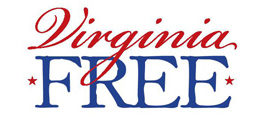Whenever a piece of legislation impacts the Biennial Budget, the Department of Planning and Budget issues its estimated costs so that legislators can make it fit into the Budget since, after all, the Commonwealth must have budget that is balanced between revenue and expenses.
Yesterday (1/28/20), Senate Commerce and Labor took up SB7 which raises the state’s Minimum Wage to $15 an hour by 2025. As originally drafted, SB7 jumps the Minimum Wage to $10 (a 38% increase) on July 1st of this year and then it goes up a dollar every July 1st until 2025. Then on July 1st every year after, the policy of the Commonwealth will be to set the base wage rate increase on the Consumer Price Index or CPI. Note – Social Security uses CPI for its adjustments while the Federal Reserve uses Personal Consumption Expenditures or PCE.
After Senate C&L passed (“reported” ) SB7, they then sent (“referred”) the bill to Senate Finance which handles the Biennial Budget. SB7’s Fiscal Impact will change state expenses based upon what the labor costs of state employees will be. Many are hourly wage employees and since the base wage rate will increase, so will all the other hourly rates. The Minimum Wage is a rate floor. Increasing it will move up all hourly wages.
To see what DPB says the fiscal impact to the State will be, click here. (Spoiler Alert – it’s not insignificant)
During the hearing on SB7, members of the committee explained to the audience and each other that the bill was going to change many times, but the Senate version was going to be much more palatable than the House’s version.
What they are in essence doing is setting the base wage rate for the Commonwealth based upon what they can fit into the state Budget and what is politically acceptable.
Recall that we pointed out that the two areas in the CNBC Best States for Business Ranking in which Virginia has relative weakness are Cost of Doing Business and Cost of Living.
Costs.
What’s the #1 cost for business?
Labor.
Today, the Weldon Cooper Center at UVA released its report (and map) on Virginia’s population estimates noting:
“Net out-migration over the past six years has contributed to Virginia’s slow growth. “The main reason Virginia is not growing as quickly as it has in recent decades is that it is no longer able to attract enough residents from other states to make up for the Virginians who are moving out of the commonwealth,” said Hamilton Lombard, a demographer at the center who prepared the estimates.”
Virginia FREE saw the political trend line on Minimum Wage several years ago and suggested that if the Commonwealth were to increase the Federal Minimum Wage, that it should have an economic basis for doing so.
We suggested that Virginia should go back to the 2009 rate setting at $7.25 an hour, adjust it for inflation, and then go forward. This would take into consideration what has already occurred in the U.S. economy. Remember from above that Social Security and the Federal Reserve cannot agree on what inflation actually is.
We even helped with a catchy phrase — “Set It and Forget It.” That way we don’t have to have a political fight (bidding war) over the base wage rate every year.
This is an important policy that will impact every business, every local government budget, and every locality of the Commonwealth – many of which (51, in fact) are already losing population.
Recall that Bernie Sanders cut campaign staff hours after being forced to raise his campaign’s base wage rate to $15 an hour.
There is an economic reality to every policy decision that changes costs.

Leave a Reply